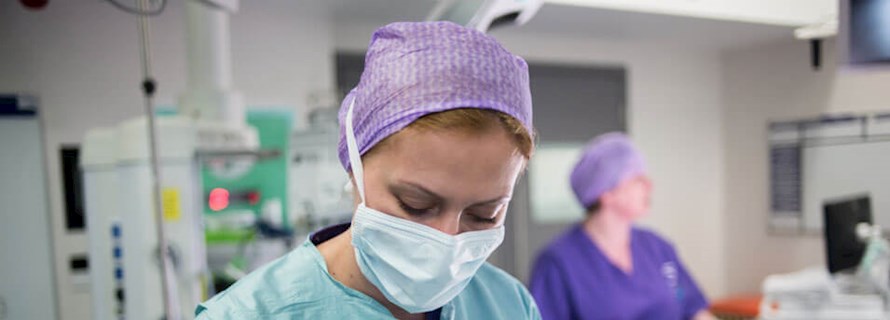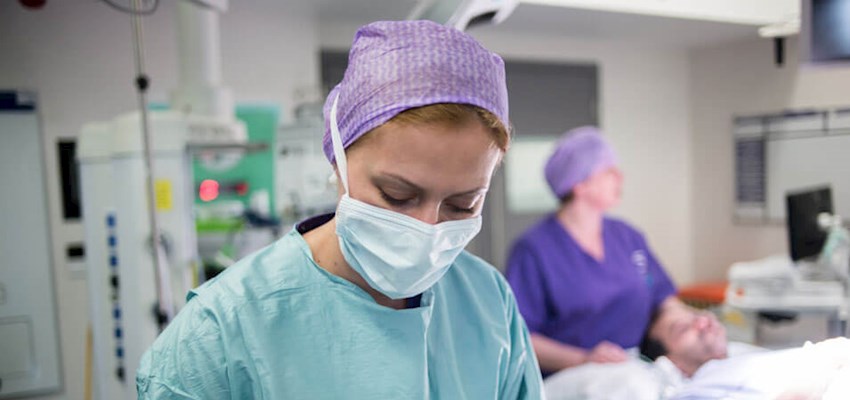Craniotomy for extradural haematoma
Surgery for a blood clot that forms on the outside of the natural covering of the brain
Our leading neurosurgeons treat bleeding on the brain (haematoma) through surgery
What is extradural haematoma?
Extradural haematoma is a condition is where blood collects and clots between the inner surface of the skull and the firm covering of the brain (dura). It's usually caused by a head injury or skull fracture.
Extradural haematomas are usually treated urgently in major trauma centres, but occasionally they may develop slowly with fewer effects on the patient, and these are sometimes treated in private hospitals. A craniotomy is an effective treatment for an extradural haematoma.
Need to know
-
What happens during surgery? icon plus
The procedure is carried out under general anaesthetic. Your head will usually be partly shaved prior to the surgery.
To start the procedure, your surgeon will make an incision in your scalp over the area of the blood clot (haematoma). They'll then use a drill to make a temporary window in the skull. Next, they'll remove the blood clot from the dura using suction and irrigation (washing out with fluid).
Once the haematoma has been removed, your consultation will put the section of skull they removed back in place and secure it.
-
How to prepare icon plus
Your consultant will explain the procedure to you and answer any questions you may have. Because you'll be having general anaesthetic, they'll let you know how long you should avoid eating and drinking before surgery.
Like all procedures, there may be some risks and side effects involved. Your consultant will explain these to you.
-
After surgery icon plus
You will wake up in the theatre recovery unit, where you will be monitored closely. It's not unusual to feel nauseous after surgery, and this will be controlled with medication.
Your consultant may suggest a follow up MRI or CT scan to observe your progress after surgery. Your consultant will let you know when you can get back to your usual routine, including work or exercise. Stitches are usually removed around 10 days after surgery.
Our consultant neurosurgeons
At HCA UK we work with leading neurosurgeons to ensure timely admission and treatment for a range of neurosurgical conditions.




Our locations
From complex neurosurgery to diagnostic tests and procedures, we provide exceptional care across our network of hospitals, outpatient centres and specialist clinics.
Book an appointment
Our team can help with any enquiries or you can make an appointment with one of our experienced consultants.
Call us today
020 7079 4344